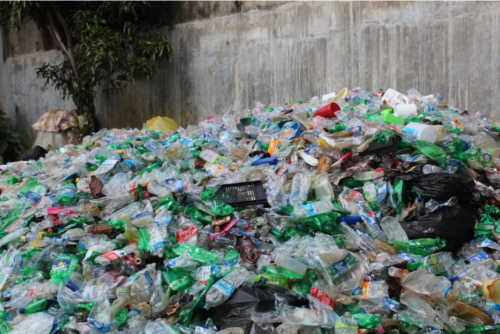Fostering Partnerships in Sri Lanka to Reduce Ocean Plastic Pollution

As a densely populated island nation of over 21 million people, Sri Lanka faces unique challenges managing its solid waste—including providing waste collection services to all of its residents. With only 20 percent—a little over 5 million households—having access to waste collection services, much of the waste ends up in dumps, is burned, or eventually makes its way into our oceans.
Clean Cities, Blue Ocean (CCBO) is the U.S. Agency for International Development’s flagship program that addresses ocean plastic pollution in ten countries across the globe in support of the Save Our Seas Initiative. The program is designed to target land-based leakage directly at its source—in rapidly urbanizing countries like Sri Lanka—by testing and scaling local solid waste management solutions.
Integral to CCBO’s approach in Sri Lanka is the focus on building partnerships as a way to leverage external funding, technical expertise, and markets to increase the impact, scale, and sustainability of local activities. Most recently, on January 10, 2023, CCBO announced a new partnership with the MAS Foundation for Change, a non-profit organization established and supported by leading global apparel and textile company MAS Holdings, that is dedicated to creating cleaner oceans through the reduction of ocean plastic pollution and advancing the 3Rs (reduce, reuse, recycle) and sustainable solid waste management. After signing a Memorandum of Understanding, both organizations will work closely to identify collaborative projects that increase plastic waste collection and community participation in 3R practices.
At the national level in Sri Lanka, USAID is engaging the private sector as a central player in building a more sustainable, circular economy. CCBO is partnering with the Ceylon Chamber of Commerce to develop the first-of-its-kind online reporting system software for an Extended Producer Responsibility (EPR) scheme; and with the Public Interest Law Foundation to advance EPR legislation at the national level.
Together with local grantee, the Island Climate Initiative, CCBO launched an Island Plastic Challenge in November 2022 to find solutions to the private sector’s plastic packaging-related challenges and to reduce their plastic footprint. The Island Climate Initiative is partnering with some of the leading companies in Sri Lanka to identify their current waste challenges related to single-use plastic packaging and issue a global call for solutions. The challenges range from finding alternative packaging for frozen desserts, to scaling up polyethylene terephthalate (PET) bottle collection and recycling, to finding recyclable alternatives for laminates, to developing other biodegradable, and recyclable alternatives. If interested, apply here before the February 28, 2023 deadline.
In July 2022, CCBO also formed a partnership with the Zero Plastic Movement, a social enterprise that has collaborated with the Central Environmental Authority, Colombo Municipal Council, and several other organizations to promote social and behavioral change among Sri Lankans—to reduce plastic waste and build a demand for plastic alternatives, while empowering local entrepreneurs. Currently, under the CCBO partnership, the Zero Plastic Movement is collaborating with eight local universities, more than 2,000 volunteers, and more than 100 local entrepreneurs that produce 300 plus plastic alternatives. CCBO supports the Zero Plastic Movement’s School Championship Program in Galle. CCBO’s support will extend the movement to nearly 40 public and private schools in Galle, where students will learn about and be motivated to practice the 3Rs. The work is raising awareness on the environmental and health impacts of improper plastic waste disposal and showing students and their families ways to safely collect and clean non-degradable plastic waste—to encourage the adoption of more sustainable plastic consumption practices.
USAID is also providing customized technical assistance to local governments in three engagement sites: in the municipalities of Galle, Jaffna, and Moratuwa (in the Colombo Metropolitan Area). At these sites CCBO is providing technical assistance to local government partners to strengthen Sri Lanka’s waste system infrastructure and operations—including through tools like the Solid Waste Capacity Index for Local Governments assessment and Cost of Service Analyses, which enables governments to better understand the true costs of operating and maintaining an efficient solid waste management system. CCBO also partners with other local grantees, Sevanatha, Janathakshan, and HELP-O, to increase informal waste worker safety and protections and to develop new recovery centers so that the informal waste sector is part of the solution in reducing ocean plastic pollution.
CCBO’s work in Sri Lanka officially launched in April 2021. To date, the program has
- Trained over 700 people from the local government, informal waste sector, and local organizations to build local capacity for solid waste management planning and programs, representing over 134 enterprises;
- Developed two innovations related to the first-of-its-kind Extended Producer Responsibility scheme and related online reporting and verification system that will be used by companies; and
- Awarded over $1.4 million in grant funding to local partners to implement effective, locally-led solutions.
For more information on CCBO and the program’s work in Sri Lanka please visit the program website.

